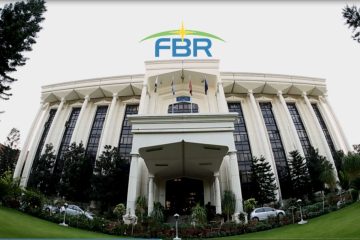Pakistan is contemplating a major overhaul of its agricultural income taxation system. The Federal Board of Revenue (FBR) is exploring the possibility of requiring agricultural income earners to file annual tax returns along with statements of their wealth.
Potential Benefits:
- Increased Revenue for Provinces: This move could significantly boost provincial tax revenues derived from agriculture.
- Transparency and Formalization: Mandatory tax returns would bring greater transparency and formalize income and wealth metrics within the sector.
Addressing Current Issues:
- Ineffective Provincial System: Presently, agricultural income is exempt from federal income tax, leaving the responsibility solely with provinces. However, the existing provincial system, based on land area rather than actual income, is widely criticized for being ineffective.
- Black Economy Concerns: Experts believe this approach allows a substantial portion of agricultural profits to go untaxed, contributing to the nation’s black economy.
Shifting to an Income-Based System:
The proposal aims to transition towards an income-based tax system for agriculture. This could unlock significantly higher revenue streams for provincial governments by:
- Reflecting True Earnings: Tax rates would be revised to reflect actual agricultural incomes, which can vary widely and be quite substantial.
- Equitable Taxation: Provinces could establish a more equitable and effective taxation model.
Alignment with Economic Experts’ Recommendations:
This initiative aligns with suggestions from economic experts and tax reform advocates who have long highlighted loopholes in the existing system.
Benefits of Transparency:
- Curbing Undocumented Wealth: Enforcing mandatory tax returns is expected to curb the accumulation of undocumented wealth.
- Fairer Tax Distribution: Transparency can encourage a fairer distribution of the tax burden among different economic sectors.
- Improved Economic Planning: A more accurate picture of agricultural wealth and income would facilitate better economic planning and resource allocation by provincial governments.
Challenges and Considerations:
- Income Assessment Challenges: Implementing the policy requires robust mechanisms to assess and monitor actual incomes, which vary greatly across regions and crops.
- Farmer Education: Heightened awareness and education among farmers, particularly smallholders, is crucial for successful tax compliance.
- Administrative Burden: Concerns exist regarding the potential administrative burden placed on both tax authorities and farmers, especially in rural areas. Effective implementation necessitates significant enhancements in administrative capacity and technological infrastructure.
Future Implications:
The FBR’s decision, expected in the coming months, will be closely watched. If enacted, this policy shift could significantly modernize Pakistan’s agricultural taxation framework, potentially setting a precedent for reforming tax structures in other sectors.







